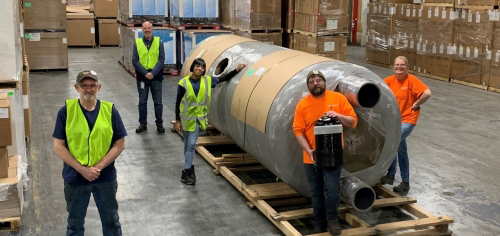I love the opening premise of Indian River Consulting Group Managing Partner Mike Marks’ recent MDM Sales GPS Presentation on the nuts and bolts of sales model redesign. The managing partner at IRCG starts by addressing a series of assumptions long held by distributors about sales operations and sales team performance. Things distributors often think are improving their margin or protecting their territory, but can actually be hurting their business. For details, take a look at the cover story in this issue, “How to Reframe Outdated Sales Model Assumptions.”
Re-examining long-held assumptions of my own has become somewhat of a regular pastime during this period of COVID-19-induced isolation. I’ll spare you the details of my epiphany that maintaining separate laundry bins for each of my six family members was actually creating more work for me rather than less. Suffice it to say, a benefit of feeling like we’re in a perpetual Groundhog Day scenario is it gives us the opportunity to question the efficiency and effectiveness of our daily routines and the things we do just because that’s how they’ve always been done.
In the business context, we increasingly have the aid of actual hard data to accompany those evaluations. And in many cases, it’s accompanied by more time now to dive in and examine the numbers.
In fact, Marks suggested that distributors who are really hitting their stride on sales transformation right now are those who have kept up with data maintenance through the years. “Having had the opportunity to work with a lot of these leaders over the last several years, every one of them have spent years being anal retentive in fighting to get their data clean,” Marks said.
Sales Reps Want to Win
As Marks addressed distributor assumptions in his Sales GPS presentation, High-Performance Sales Models: The Next Paradigm, he didn’t call out the following, but he did reference it later and I think it is perhaps the most basic assumption of all: the belief that all sales reps need to sell products.
He shared a great example of why this is not always the case. A distribution co-op that sells to hardware stores and others uses its sales reps to recruit customers into their program that provides supplies with auto-replenishment. The sales reps sell the program and are not involved in product transactions. If a customer does request a sales person come into one of their locations to write an order in-person, that customer is charged for the sales call.
“Think about working with your sales force. Instead of selling products, why don’t they become the best-practice experts for your customers,” Marks said.
Sales reps want to win. Increasingly, winning looks less like selling product and more like selling a solid value proposition. As Marks said, make customers want to buy the commodity products from you so that they can access your knowledgeable sales people, whose job it is to help them grow their business.
Related Posts
-
The global pandemic has weakened traditional selling processes — making now an optimal time to…
-
Indian River Consulting Group’s Mike Marks argues that sales transformation cannot happen for a distributor…
-
Industrial & Flow Technologies sales were down 3% compared to sales for the same period…






